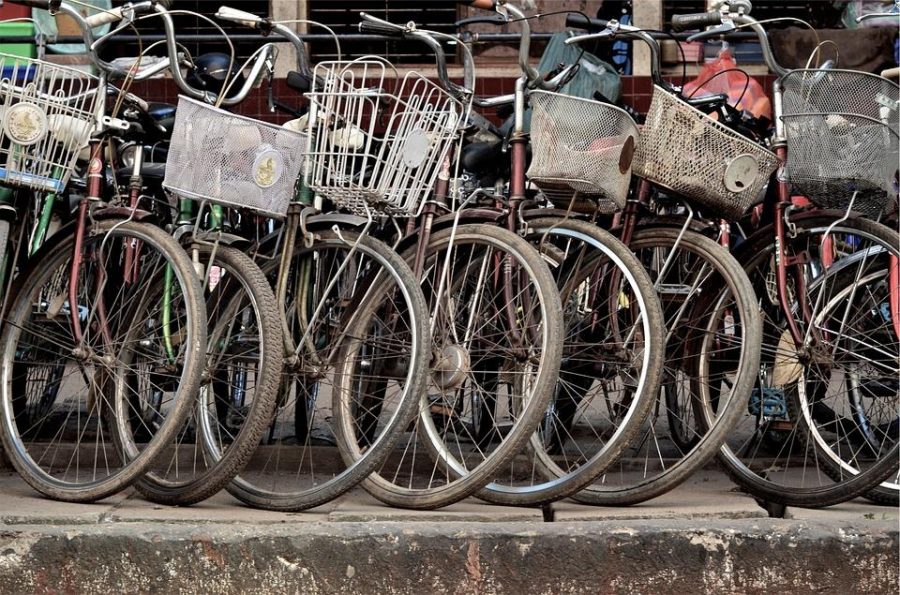You bike to campus one morning. It’s early so you have time to workout at the student life center before meeting the rest of your responsibilities for the day. You lock your bicycle to a rack outside the building and you notice, without thinking too much about it, that the bike next to yours is completely unlocked. Less than an hour later, you leave the student life center only to find your bike gone. To add to the frustration, the unlocked bike from earlier is still in the rack, untouched. This isn’t merely a hypothetical; it’s what happened to Jake Sorensen, an employee at the University of Utah, and director of the U’s student media.
Between March 9 and May 9 of this year, 28 bikes were reported stolen. During that time, the campus police public crime reports also note four bikes were found and six people were arrested for bicycle thefts. These events happened all across campus; two were stolen from Primary Children’s Hospital and one was recovered in a Salt Lake City apartment off campus, but most were concentrated around student housing and classrooms on campus. None of these reports mention whether the bicycles were locked.
The U’s Commuter Services department encourages students, staff and faculty to ride bikes on campus, citing health benefits, “closer access to [buildings] than vehicle parking lots” and relatively low costs to the rider.
Salt Lake County has a mandatory bicycle registration program for anyone riding in the area which has been legally required since 2005. It aims to return found or recovered bicycles to their owners.
In 2011, the Commuter Services department instituted a Bicycle Master Plan to help make biking on campus a better experience, and part of this plan is helping students become compliant with that program online for free. The bicycle registration website is currently down for maintenance, according to Campus Police Sgt. Garth Smith, and isn’t sure when it would be back up.
Sorensen says he “didn’t even know [the registration website] existed.” Browne Sebright, a senior in Urban Ecology who has never had a bike stolen, says he uses the website because he couldn’t arrange to store his bicycle in a campus bike locker without registering.
Both Sorensen and Sebright said their bikes are “flashy” and felt they thus had a higher probability of being stolen. Sorensen doesn’t expect to see his bike again. When he called campus police, they told him it would be difficult to return his bike to him because he doesn’t have its serial number.
“Make sure you know [the serial number] so you can turn it over to police if your bike ever gets stolen.” He also says the lock he used to secure his bike was not the best and “a good lock is worth investing in.”
Sebright seemed to feel the registration system is a useful way to possibly get your bike back in the event it’s stolen. The best course of action for bike riders on campus is probably a strong combination of both pieces of advice. Record your bike’s serial number, secure it somewhere safe with a good lock, and register it just in case.
e.vandersteen@dailyutahchronicle.com
This article was updated to indicate that Jacob Sorensen is the Director of the University of Utah Student Media.


